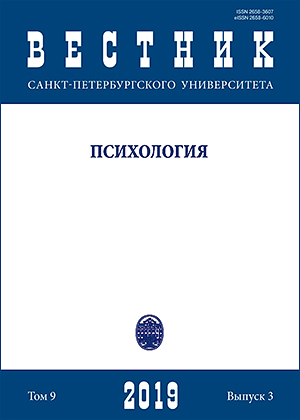Cultural and psychological transformations of modernity in light of the methodology of latent changes: subcultures
DOI:
https://doi.org/10.21638/spbu16.2019.301Abstract
The idea of subcultures arose in connection with the understanding of the heterogeneity of society and the need to differentiate lifestyles within a certain culture. Thus, it reflected the tendency of complication, individualization, and diversity of human life. During the twentieth century researchers’ focus of attention shifted from cultural theories to subcultures; from the phenomenology of subcultures to the study of informal movements, “urban tribes”, small cultural traditions and finally — to the transformation of values. Today the analysis of mobility and the multiplicity of identities which are developing in a fluid and transitive sociocultural environment are at the forefront of study. All this required a different conceptual language and the search for new methodological strategies. The concept of “subculture” is often criticized both as an analytical construct and as a fading reality due to the expansion of globalization, mixing of traditions, values and different lifestyles; and the study of identity is increasingly taking place in the framework of transdisciplinary and polyparadigmatic approaches. A new look at the transformations of modernity develops a methodology of latent changes that focuses on the lability, inconsistency and ambiguity of identity and subculture. The forms and ways of organizing subcultures today are changing. Subcultures can be represented in the social space by small patches, dispersed, virtual and therefore not visible, not obvious, difficult to recognize. These transformations are referred to as the phenomena of transitive and dispersed subcultures.
Keywords:
methodology, modern psychology, subculture, identity, socio-cultural movements, latent changes, transdisciplinarity
Downloads
References
References
Downloads
Published
How to Cite
Issue
Section
License
Articles of "Vestnik of Saint Petersburg University. Psychology" are open access distributed under the terms of the License Agreement with Saint Petersburg State University, which permits to the authors unrestricted distribution and self-archiving free of charge.




